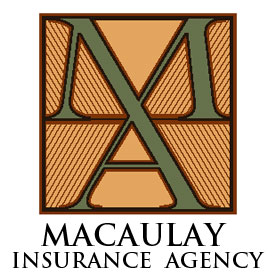Actual cash value:
The value of the property when it is damaged or destroyed. This is usually figured by taking the replacement cost and subtracting depreciation.
Adjuster:
An insurance company representative who seeks to determine the extent of the firm’s liability for loss when a claim is submitted.
Agent:
A person licensed by a state insurance department who solicits, negotiates, or effects insurance contracts on behalf of one or more insurers.
All risks:
The term “all risk” means there is coverage for all perils except those excluded. A particular exposure would be insured against economic loss by any peril that is not specifically excluded under the terms of the contract.
Auto insurance:
A type of insurance that protects the policyholder against losses involving automobiles. Different coverages can be purchased depending on the needs and wants of the insured.
Binder:
An agreement to provide immediate insurance coverage. May be oral or written and sets forth conditions of coverage. Often used during the interval between the coverage becoming effective and the time a formal policy is prepared and delivered. Normally it is issued for a limited period of time.
Broker:
A marketing specialist who represents buyers of property and liability insurance and who deals with either agents or companies in arranging for the coverage requested by the customer.
Captive agent:
An agent who sells insurance for only one company, as opposed to an independent agent who represents several companies
Claim:
A request for reimbursement for a loss covered by the policy. For example, a claim for items stolen from the policyholder’s business.
COBRA benefits:
COBRA stands for “Consolidated Omnibus Budget Reconciliation Act of 1985,” which requires companies with 20 or more employees to offer separating employees the option to continue their group health-care coverage at their own expense.
Coinsurance:
A provision that requires the insured to share in the cost of covered services on a percentage basis. A typical coinsurance arrangement is 80% by the insurer and 20% by the insured.
Collision:
An optional auto insurance coverage that pays for damage to the policyholder’s car caused by its collision with another vehicle or object.
Comprehensive coverage or Other than Collision:
Personal auto insurance policies use this term for physical damage coverage for losses by fire, theft, vandalism, falling objects and various other perils.
Conditions:
Provisions of an insurance policy that state the rights and duties of the insured or the insurer. Typical conditions have to do with such things as the insured’s duties in the event of loss, cancellation provisions, and the right of the insurer to inspect the property.
Copayment:
A provision in insurance policies that requires the insured to pay a flat fee for certain medical expenses.
Coverage:
The scope of protection provided under an insurance contract.
Deductible:
The amount of an insured loss paid by the policyholder. For example, if you select a deductible of $250 for your auto insurance policy, you agree to pay the first $250 worth of damages to your car if you are in an accident.
Defined network plan:
Any health benefit plan that requires or creates incentives for an enrollee to use providers that are owned, managed, or under contract with the insurer offering the plan. This type of plan is sometimes referred to as a managed care plan.
Depreciation:
A decrease in the value of property over a period of time resulting from use, obsolescence, or wear and tear.
Disability insurance:
A type of health insurance that pays a monthly income to the policyholder when he or she is unable to work because of an illness or accident.
Endorsement:
An attachment to an insurance policy that amends and alters the coverage provided in the policy. In life and health insurance it is called a rider.
Exclusions:
Specific situations, conditions, or circumstances that are listed in the insurance policy as not being covered.
Health insurance:
A general term for insurance against loss by sickness or bodily injury. This usually includes coverage for medical expenses such as doctor visits and hospital stays and can cover normal and preventive care such as check-ups, prenatal care, and well-baby care.
Independent agent:
An insurance agent who represents more than one insurer.
Insurance:
A formal devise for reducing the chance of loss by transferring the risks of several individual entities to insurance companies.
Insured:
The party covered by an insurance arrangement, to whom an insurance company agrees to indemnify for losses, provide benefits, or render services.
Liability:
Individual responsibility for causing, through negligence, injury to another person or damage to another person’s property.
Managed care:
(see Defined network plan)
Market value:
This is a value placed on real or personal property which relates to its resale value in the market place. Since the object of most property insurance policies is to pay the insured the actual cash value or the cost to repair or replace the damaged or destroyed property, the “market” or “book” values are not used in loss settlements.
Medical payments insurance:
A form of coverage, optional in various liability policies such as auto insurance, that provides for the payment of medical and similar expenses regardless of liability.
Named peril or specified peril:
This is a peril indicated or identified in the contract as a cause of loss for which insurance is being provided. Under such contracts if a peril is not named or specified it is not covered.
Package policy:
A single insurance policy that combines several coverages available separately. For example, business owner’s insurance is a package policy, combining property, liability, and theft coverages.
Peril:
A property insurance term referring to the possible cause of loss such as a fire or windstorm.
Personal property:
All tangible property not classified as real property.
Policy:
A written contract for insurance between the insurance company and the policyholder.
Premium:
The amount of money an insurance company charges, based on a given rate, to provide the coverage described in the policy, or simply stated, the price of insurance protection for a specified risk for a specified period of time, typically one year.
Property/Casualty insurance:
Property insurance covers damage to or loss of the policyholder’s property. The terms “casualty” and “liability” insurance are often used interchangeably. Both cover the policyholder’s legal liability for damages caused to other persons and/or their property.
Rate:
The cost of a unit of insurance as determined by insurance companies and state regulators. The rate serves as the basis for the premium.
Real property:
Land and most things attached to the land such as buildings and vegetation.
Replacement cost:
The cost of replacing property without a deduction of depreciation.
Risk:
This word has two meanings for insurers: (1) the chance of loss such as from a peril; and (2) the person or entity that is insured by a policy.
Theft:
The act of stealing or taking the property of another.
Umbrella liability:
A form of insurance protection against losses in excess of the amount covered by other liability insurance policies; also protects the insured in many situations not covered by the usual liability policies.
Underwriting:
The process by which an insurance company selects and classifies risks according to their degree of insurability.
Underinsured motorist (UIM) coverage:
A coverage in an automobile insurance policy under which the insurance company will pay damages to the insured for which another motorist is liable if the motorist causing an accident has lower bodily injury liability limits than your UIM limits. The maximum dollars paid is then the difference between the two limits.
Uninsured motorist (UM) coverage:
A coverage in an automobile insurance policy under which the insurance company will pay damages to the insured for which another motorist is liable if that motorist is unable to pay because he or she is uninsured. This coverage applies to bodily injury damages only. Injuries to the insured caused by a hit-and-run driver are also covered.
Utilization review:
A method of claims review whereby the insurance company analyzes a case, either prospectively, concurrently, or retrospectively to determine if the treatment given is necessary and appropriate.
Worker’s compensation:
A policy conforming to state law which pays benefits to an employee (or an employee’s family) if the employee suffers a job-related injury (including death) or occupational injury.

